E-böcker / Filosofi

Terve, Lukianos!
Lukianos oli syyrialainen kirjailija ja kiertelevä puhuja, joka eli noin vuosina 125–180. Hän oli älykäs kirjoittaja, joka arvosteli terävästi muun muassa aikansa politiikkaa. Luki ...

Historian hyödystä ja haitasta elämälle
Friedrich Nietzschen Epäajanmukaisia tutkisteluja ilmestyi neljässä osassa vuosina 1873-1876. Toinen osa, Historian hyödystä ja haitasta elämälle, ilmestyi 1874. Tämä pieni histori ...

In Case of Emergency TAKE THE STAIRS
The first book of The Unique Gathered Value AnthologyAll depends on you… Do you want to come all the way to your ownCastle of Wealth or do you become lost in the Forest of Life.Con ...

Tro Vett Vanvett
Avspända samtal med vänner i en avskild och trivsam miljö är ibland det bästa sättet att närma sig tillvarons gåtor. En av dem är om Gud finns och verkligen påverkar vår tillvaro? ...
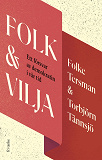
Folk & Vilja : Ett försvar av demokratin i vår tid
Den senaste tidens politiska turbulens visar att demokratin är hotad, även i de stater som räknats som de tryggaste demokratierna. Rapporter påvisar en aktuell trend mot ökat aukto ...
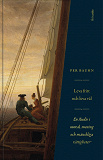
Leva fritt och leva väl : En studie i moral, mening och mänskliga rättigheter
Vad kännetecknar ett gott liv? Hur förhåller sig frihet och välbefinnande till ett gott liv? Kan frihet och välbefinnande betraktas som moraliska rättigheter? Och har vi en skyldig ...

Gud: Jakten : Existentiell svindel i det tjugoförsta århundradet
Sverige kallas ibland för världens mest sekulariserade land, men sökandet efter det heliga finns som en underström också i det sekulära. Det menar författaren och teologen Joel Hal ...
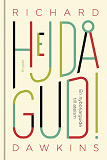
Hejdå Gud! : En nybörjarguide till ateism
Bör vi tro på Gud? Behöver vi Gud för att förklara universums existens? Behöver vi Gud för att bli goda? I denna snabba introduktion till modern ateism förklarar en av världens stö ...
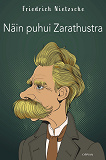
Näin puhui Zarathustra
Näin puhui Zarathustra on Friedrich Nietzschen tunnetuin ja tärkein teos, jossa suuren saksalaisen filosofin ajatukset tiivistyvät kaikkein kirkkaimpaan muotoonsa. Tästä kirjasta l ...
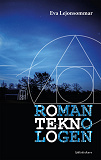
Romanteknologen
Elin är en svensk teknikflykting som inte har varit i Stockholm sedan 2021. I hennes journaleroch utredningar från gymnasietiden, står det att hon envist vägrar berätta om sina vär ...
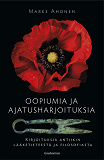
Oopiumia ja ajatusharjoituksia
Antiikin lääketieteessä on paljon meille vierasta mutta myös paljon meille tuttua. Yskä ja vatsakipu olivat antiikin arkipäivää, melankolia painoi mielen matalaksi ja univaikeudet ...

Antikristus
Antikristus-kirjassa Friedrich Nietzschen ampuu täysilaidallisen kohti kristinuskoa ja sen vaikutusta yhteiskuntaan. ”Kristillisellä moraalilla ja kristinuskolla ei ole yhtään kosk ...
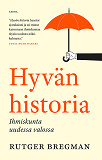
Hyvän historia
Hyvä. Parempi. Ihminen.Ihminen on luonnostaan itsekäs ja ihmiskunta tavoittelee vain omaa etuaan. Tätä ajatusta toistavat niin historioitsijat, psykologit ja filosofit kuin iltapäi ...
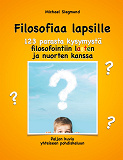
Filosofiaa lapsille. 123 parasta kysymystä filosofointiin lasten ja nuorten kanssa: Paljon kuvia yhteiseen pohdiskeluun
Mitä on aika? Onko puulla tunteita? Minkälaista olisi olla kuolematon? Mikä tässä maailmassa on erityisen kaunista? Ovatko aikuiset lapsia onnellisempia? Mitä "onni" oikeastaan tar ...
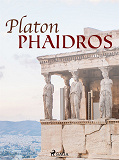
Phaidros
Teoksessaan Phaidros Platon kuvaa Sokrateen ja Phaidroksen dialogia sielun filosofiasta. Vaikka kirjoitus keskittyykin rakkauden tematiikkaan, se nostaa ennen kaikkea esiin Platoni ...
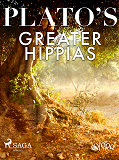
Plato’s Greater Hippias
Hippias of Elis travels throughout the Greek world practicing and teaching the art of making beautiful speeches. On a rare visit to Athens, he meets Socrates who questions him abou ...
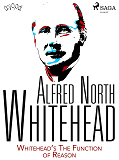
Whitehead’s The Function of Reason
Whitehead presented these three lectures at Princeton University in 1929. Although 85 years have passed, his central thesis and his analysis remain remarkably current. The scientif ...
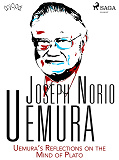
Uemura’s Reflections on the Mind of Plato
“Plato was not a Platonist! I would like to show . . . that anyone who reads the dialogues of Plato without bias or an ax to grind will find a humorous, witty, pleasant friend; and ...
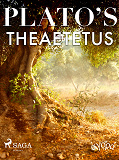
Plato’s Theaetetus
Perception, memory, truth, and knowledge all play major roles in this dialogue. What is remarkable about Plato’s treatment of those ideas is how contemporary are both the questions ...
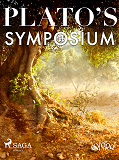
Plato’s Symposium
The dramatic nature of Plato’s dialogues is delightfully evident in the "Symposium." The marriage between character and thought bursts forth as the guests gather at Agathon’s house ...
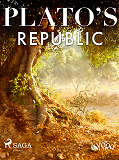
Plato’s Republic
The "Republic" poses questions that endure: What is justice? What form of community fosters the best possible life for human beings? What is the nature and destiny of the soul? Wha ...
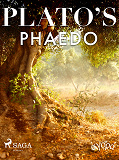
Plato’s Phaedo
Socrates is in prison, sentenced to die when the sun sets. In this final conversation, he asks what will become of him once he drinks the poison prescribed for his execution. Socra ...
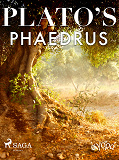
Plato’s Phaedrus
Plato’s dialogues frequently cover several topics and show their connection to each other. The "Phaedrus" is a model of that skill because of its seamless progression from examples ...
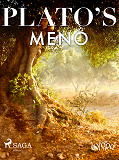
Plato’s Meno
A dialogue between Socrates and Meno probes the subject of ethics. Can goodness be taught? If it can, then we should be able to find teachers capable of instructing others about wh ...
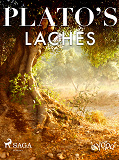
Plato’s Laches
Laches, a general in the Athenian army, saw Socrates fight bravely in the battle of Delium. When he and Nicias, another general, are asked to explain the idea of courage, they are ...
